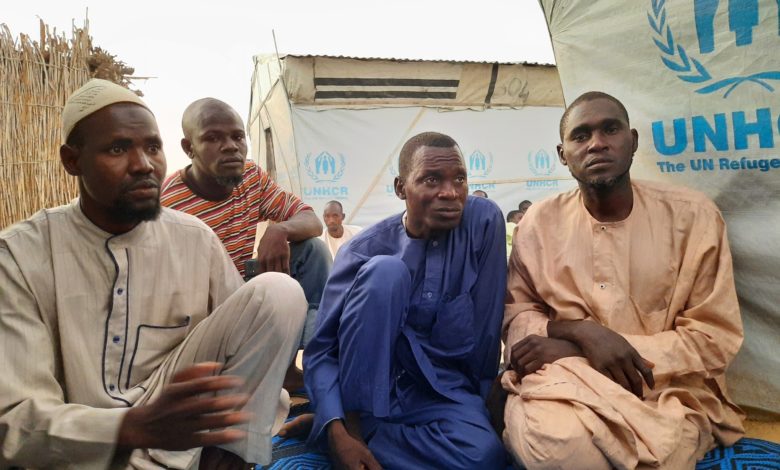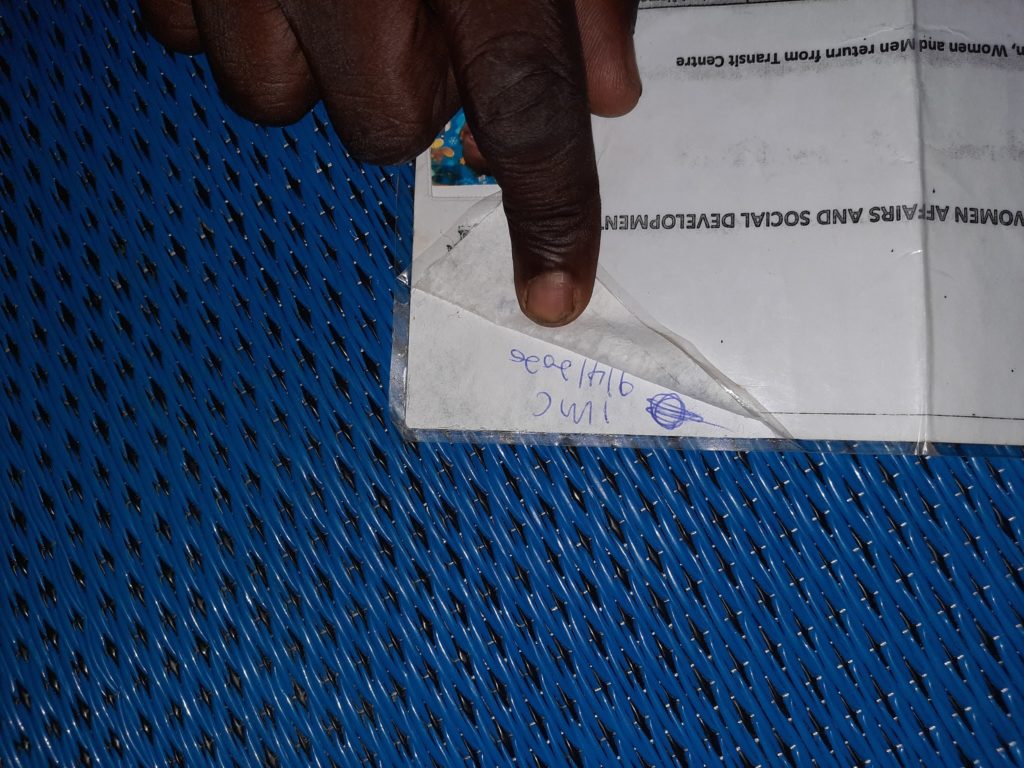Borno IDPs Raise Alarm Over Delay, Irregularities In Food Supply

Internally Displaced Persons (IDPs) in Borno, who were recently released from Giwa Barracks, a notorious military detention facility in Maiduguri, have complained about the lack of regular food supply as well as suspicious practices from officials in the employ of a humanitarian aid organisation, the International Medical Corps (IMC).
The former detainees, currently living at the Dalori II IDP Camp in the state capital, narrated their ordeal to HumAngle. Numbering a total of 37, most of them were released from the barracks in November 2019, after the Nigerian Army cleared them of having links to Boko Haram. They then spent about three months at the Umaru Shehu General Hospital for rehabilitation. But life has since been tough for them as IDPs.
After complaining about hunger and food shortage, IMC officials visited the camp and issued tags to the former detainees. They then provided them with 6kg of guinea corn, half a litre of vegetable oil, and 4kg of beans every month between April and June, before suddenly suspending the aid.

On Wednesday, October 7, the humanitarian officials returned to the camp and requested for a meeting with the IDPs. Sixteen (16) of them who were present at the time attended and explained that the rest had gone to work.
“They asked how long we have not been given food, we replied three months,” recalled 40-year-old Bura Bukar. “They said those three previous months are gone; that is we will not be getting food packages for the period. They also said our supplies have been delivered but the package is without vegetable oil.”
The officials came the following day with the food supplies. But rather than distribute immediately to the IDPs, they reportedly started calling out strange names, whom they said were from Auno, a community in Borno State. About 30 names had been called, out of which four were present, but none of the names was that of a former detainee.
“The people they said are from Auno village are not detainees. There was confusion, so we told them they could not give anyone until they had given us what they promised,” Bukar said.
According to the IDPs, the IMC officials said the list was given to them by one of the camp officials. When the manager was contacted, he apologised for the “mistake” and assured the IDPs that their names would be presented to the humanitarian organisation.
The inhumane conditions detainees are subjected to at Giwa Barracks and the arbitrary nature of arrests of “suspected Boko Haram members” have been widely condemned. Amnesty International reported in 2016 that at least 1,200 were held at the facility as of March that year, including boys aged five to 16 years. Nearly 1,000 detainees were set free last November.
Since their release from the detention facility, however, the IDPs have not received compensation to restart their lives and many of them have to rely on help from others, such as displaced persons who receive monthly feeding allowances from the World Food Programme (WFP).
“It has been over nine months since we arrived at this camp and since then we have not received food except for three months, from April to June,” said Tijani Bulama, 48.
Bulama had been detained at Giwa Barracks for four years before he was finally released. His two wives and 10 children live with him at the Dalori II IDP camp. One of his wives receives feeding allowances of N17,000 every month from WFP but it is not enough to satisfy his entire family.
To make up for the shortfall, Bulama hopes to get some money by working at a piece of farm close to Lake Alo, an area known to have been frequently visited by Boko Haram fighters.
“Now, I am suffering and helpless. What we need from WFP is for them to register us so that every month we will be collecting our food money,” he told HumAngle.
“If they do that, my life will really improve. I will be able to provide food to my children and family and I will stop going to the bush. You know, there is Boko Haram there and easily they would kill me.”
Support Our Journalism
There are millions of ordinary people affected by conflict in Africa whose stories are missing in the mainstream media. HumAngle is determined to tell those challenging and under-reported stories, hoping that the people impacted by these conflicts will find the safety and security they deserve.
To ensure that we continue to provide public service coverage, we have a small favour to ask you. We want you to be part of our journalistic endeavour by contributing a token to us.
Your donation will further promote a robust, free, and independent media.
Donate HereStay Closer To The Stories That Matter




